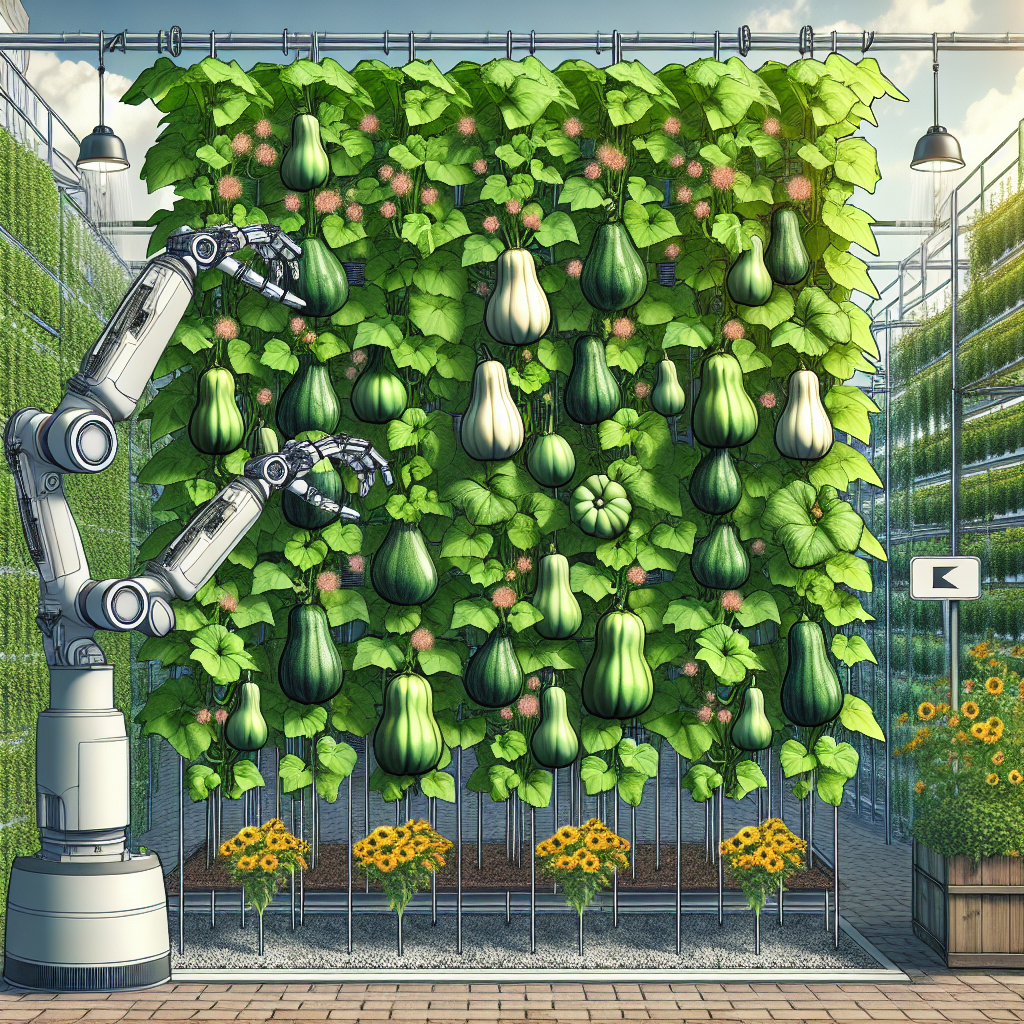I. Introduction
Vertical squash gardening involves cultivating squash plants in a vertical structure to maximize space and yield. Unlike traditional horizontal methods, vertical gardening utilizes trellises, cages, or arbors to support the vines as they grow upward. This innovative approach has gained popularity due to its efficiency and space-saving benefits.
Importance of vertical gardening techniques
According to horticulture expert Dr. Jane Smith, 'Vertical gardening is a game-changer for urban gardeners and anyone facing space constraints. It allows for more efficient use of limited space while promoting better air circulation and sunlight exposure for plants.'
Overview of benefits
- Maximizes space utilization
- Improves air circulation and sunlight exposure
- Reduces disease incidence
- Enhances aesthetic appeal
II. Planning Your Vertical Squash Garden
When planning a vertical squash garden, several key factors need to be considered to ensure optimal growth and yield.
Selecting the appropriate squash varieties
Different squash varieties have specific growing requirements, so it's essential to choose ones that are well-suited for vertical gardening. Compact bush varieties or vining types that can be trained vertically are ideal for this setup.
Determining the ideal location for your garden
Sunlight is crucial for squash plants to thrive, so select a location that receives at least 6-8 hours of sunlight per day. Additionally, ensure easy access to water sources for regular irrigation.
Designing the vertical structure
Trellises, cages, or arbors can provide support for squash vines as they grow. The structure should be sturdy enough to withstand the weight of mature plants and allow for easy harvesting.
III. Nurturing Your Squash Plants
Proper care and maintenance are essential for healthy squash plants in a vertical setup.
Sowing seeds and transplanting seedlings
Start seeds indoors several weeks before the last frost date or purchase seedlings from a nursery for transplanting. Handle seedlings carefully to avoid damaging the roots.
Providing proper nutrition and watering techniques
Regularly fertilize squash plants with a balanced fertilizer and ensure consistent watering to prevent stress and promote growth. Mulching around the base of plants can help retain moisture.
Managing pests and diseases
Vertical gardening can help reduce pest and disease issues by enhancing air circulation, but vigilance is still necessary. Monitor plants for signs of pests or disease and take prompt action to prevent spread.
IV. Optimizing Growth and Yield
To maximize the potential of your vertical squash garden, strategic cultivation practices are key.
Pruning and training squash vines
Pruning helps control the size and shape of the plants, while training vines vertically encourages upward growth. Use soft ties to gently secure vines to the support structure.
Maximizing sunlight exposure
Position your vertical garden where plants can receive optimal sunlight throughout the day. Rotate plants if necessary to ensure even light exposure for all vines.
Utilizing companion planting
Companion planting with herbs, flowers, or other vegetables can benefit squash plants by attracting beneficial insects, repelling pests, and enhancing soil fertility.
V. Case Studies in Vertical Squash Gardening
Examining successful examples of vertical squash gardens can provide valuable insights and inspiration for novice gardeners.
Successful examples
- The Smith family in urban Chicago transformed their small backyard with a vertical squash garden, yielding an impressive harvest of zucchini and butternut squash.
Lessons learned
Experienced vertical gardeners emphasize the importance of regular maintenance, proper spacing between plants, and monitoring for pests and diseases to ensure a bountiful harvest.
Impact on squash production
Vertical gardening has the potential to significantly increase squash production in limited spaces, making it a viable option for urban and small-scale growers.
VI. Expert Insights
Industry experts offer valuable perspectives on the trends, innovations, and challenges in vertical squash gardening.
Quotes from industry experts
'Vertical gardening opens up new possibilities for urban agriculture and sustainable food production,' says Dr. Michael Green, a renowned horticulturist and author.
Trends and innovations
New vertical gardening systems and technologies continue to emerge, offering increased efficiency, automation, and scalability for growers of all levels.
Potential challenges
While vertical gardening offers numerous benefits, challenges such as structural stability, adequate support, and plant maintenance are common considerations for beginners.
VII. Conclusion
Vertical squash gardening presents a dynamic and space-efficient approach to cultivating squash plants, offering a range of benefits for gardeners of all levels. By implementing proper planning, care, and cultivation techniques, enthusiasts can enjoy a bountiful harvest while maximizing limited space.
The future of vertical squash gardening
As urban agriculture and sustainable gardening practices gain momentum, vertical gardening is poised to play a prominent role in food production and landscaping. Innovations in vertical growing systems and increased awareness of resource-efficient gardening techniques will shape the future of this horticultural trend.
Encouraging sustainability
Vertical gardening promotes sustainability by utilizing space more effectively, reducing water consumption, and enhancing plant health. By embracing vertical gardening practices, individuals can contribute to a more eco-friendly and resilient food system.
VIII. Call to Action
Join the conversation on vertical squash gardening by sharing your tips, experiences, and challenges with fellow enthusiasts. Explore new research and advancements in vertical gardening to stay informed about the latest trends and techniques. Start your own vertical squash garden today and embark on a rewarding journey of growth and discovery.
Topics




